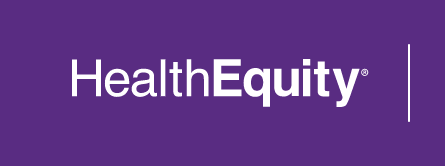There is a phenomenon known as "status quo bias." When given the choice to do something and do nothing, it's what causes people to do nothing. Status quo bias leads to people to not check the box, or not enroll in workplace savings plans like 401(k)s and health savings accounts (HSAs). Despite the ease of the task and the benefits associated with them; the majority of people choose the path of least resistance or the status quo as opposed to taking that first step.
The retirement problem
The status quo bias manifests some troubling data for employers. According to a 2016 US Government Accountability Office (GAO) study, 48% of Americans age 55 and over have no retirement savings in a 401(k)-style plan or individual retirement account. Employers are concerned by this fact; only 16% of companies are "very confident" their employees will be financially secure in retirement. In addition to these items, estimates for healthcare expenses in retirement is $296,000 and climbing. What can employers do to help with employees' retirement situation?
Potential solution
There are a few things employers can do to help employees better understand the reality of their retirement outlook. We have addressed a few options, including, establishing a partnership mindset with your employees, matching strategies and maximizing HSA contributions in a previous post. In this post we will address the potential solution of auto enrollment.
Auto enrollment
The U.S. Bureau of Labor Statistics found that 42% of workers with access to a 401(k)-workplace savings plan actually participate. One thing employers are doing to combat the status quo bias in the workplace is to implement auto enrollment for their employee's retirement savings. According to Willis Towers Watson, 73% of companies surveyed automatically enroll employees in the company 401(k) plan and Pew found that most would stay in plan if enrolled automatically.
Could the same be true for HSAs? Possibly, but due to the tax implications and eligibility requirements of HSAs, there are a few things to keep in mind.
Employer lump-sum contribution
Auto enrolling your employees in an HSA plan is not as straightforward as a 401(k), due to the healthcare eligibility requirements. Before making any HSA and healthcare election decisions for or on behalf of employees, consult with a legal and benefits professional regarding your specific plan.
However, if you would like to give your employees a nudge to overcome status quo bias in your organization when it comes to auto enrollments in an HSA, there may be an option. Some HSA providers benefit from state law that provides that an HSA is automatically established on the first day of coverage under an HSA-qualified healthcare plan as long as the HSA is opened before the federal income tax filing deadline for that year. If you're considering this option, find an HSA provider that benefits from this provision.
Payroll deductions
Opt-in HSA election
Opt-in election, also known as positive election, is where the employee is given a list of options and consciously selects an HSA payroll deduction amount on a schedule. For example; $100 per pay period or $500 per month.
Opt-out HSA election
Opt-out, or negative election, is a scenario, similar to a 401(k), where the employer provides the employee with a notification of auto enrollment and automatic payroll deferral sets a default contribution amount to an HSA for the employee. The employee must explicitly go in and opt-out of the payroll deferral.
Here are a few examples for payroll deferral:
- Set dollar amount per paycheck or per month
- Dollar amount equal to the amount necessary for employer match
- Default amount as the difference in cost between the HDHP and higher cost plan
Conclusion
Employers are concerned about their employee's long-term savings and their ability to retire on time. The data shows that auto enrollment in savings plans can lead to higher savings rates for employees. The question for each employer is whether they are willing and able to give their employees the nudges necessary to have real lasting impact. It may just be the push employees need to take control of their retirement savings goals.
To make the most of your employee's healthcare savings go to healthequity.com/learn/hsa
HealthEquity does not provide legal, tax or financial advice. Always consult a professional when making life changing decisions.
It is the members' responsibility to ensure eligibility requirements as well as if they are eligible for the expenses submitted.


